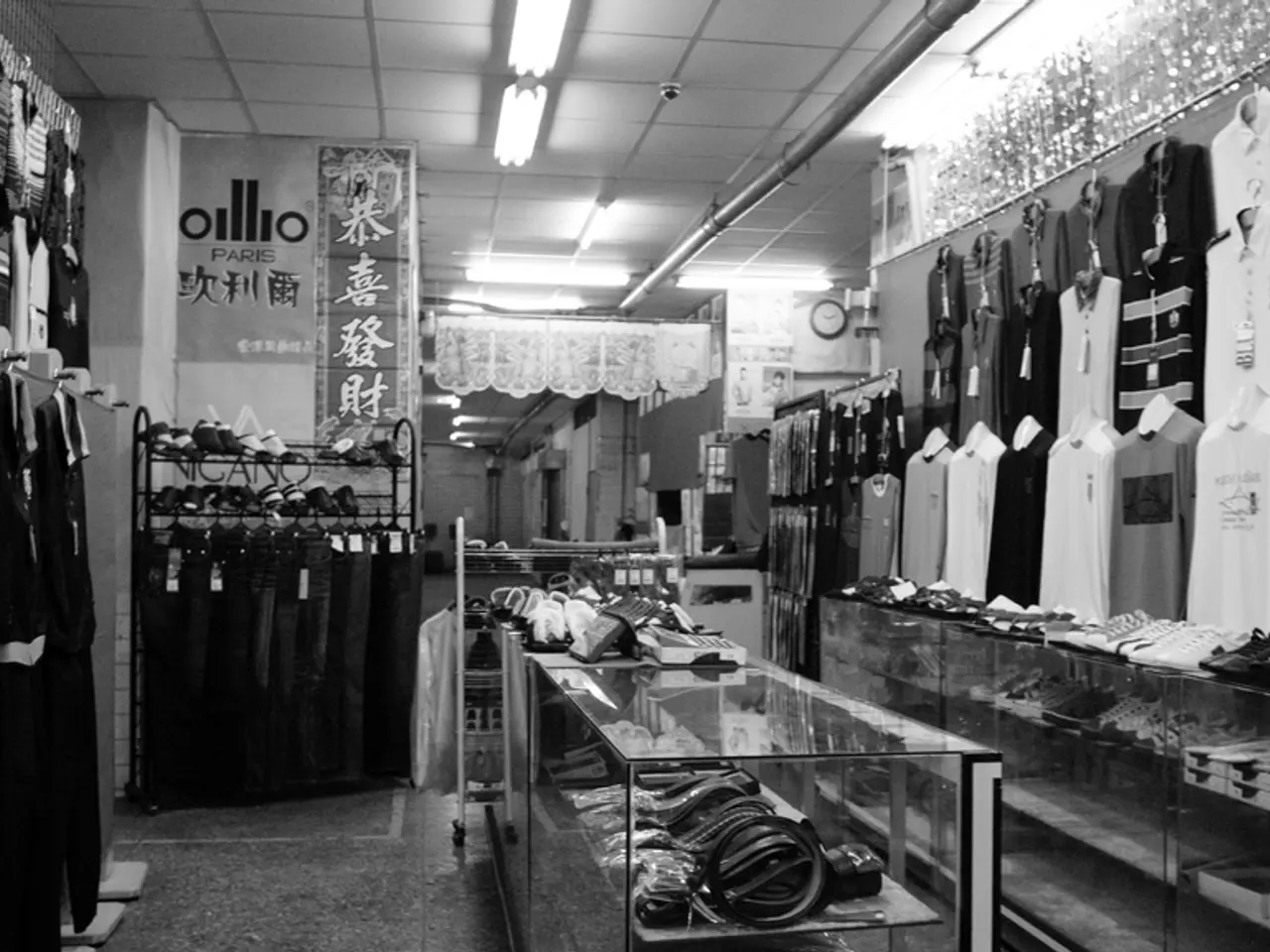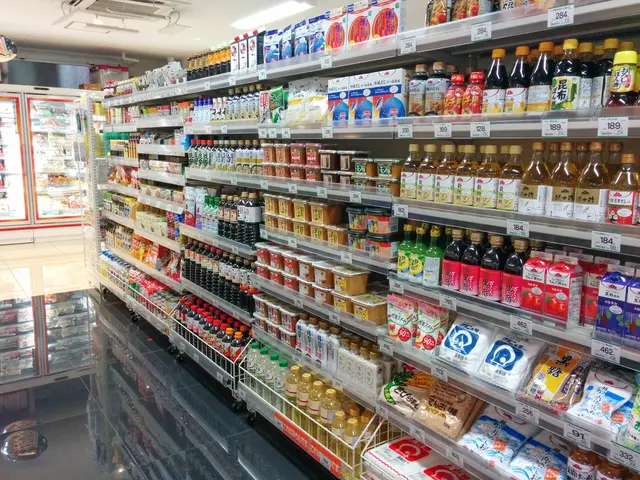Fashion Week in Copenhagen Under Siege; Greenwashing and Designers' Withdrawals Pose Significant Challenges
Copenhagen Fashion Week Embraces Sustainability
Copenhagen Fashion Week (CPHFW) is making waves in the fashion industry, setting global standards for sustainability. The event, which takes place in the Danish capital, has implemented a rigorous Sustainability Framework that requires brands to meet strict environmental, ethical, and social standards.
The framework, which was developed and implemented starting in 2019, includes requirements such as the use of recycled or certified materials (at least 60% per collection), banning of virgin fur and unsustainable animal products, circular design principles, waste sorting, emissions tracking and offsetting, and transparent public sustainability reporting. Brands are also expected to provide comprehensive ESG strategies reviewed by leadership and offer sustainability training for staff.
The framework reflects Copenhagen’s democratic and functional aesthetic culture, balancing quality with environmental responsibility. It has been widely adopted by brands participating in the event, with full participation across the schedule to avoid exclusion of brands by providing knowledge and tools to meet the standards.
Despite the framework's comprehensive nature, Danish researchers and NGOs have flagged persistent flaws in its implementation. For example, brands such as Baum und Pferdgarten have been criticized for falling short on eliminating polyester, while TG Botanical's promotion as "sustainable" has been deemed fundamentally misleading.
Regarding greenwashing allegations, Copenhagen Fashion Week's emphasis on transparency (public sharing of sustainability strategies and audits), strict requirements for verified recycled or certified materials, banning destructive practices (such as destruction of unsold goods), and third-party standards suggest a proactive approach to minimizing greenwashing risk. However, since no explicit mention of allegations appears in the current sources, it can be inferred that Copenhagen Fashion Week's sustainability enforcement is taken seriously and has not faced prominent public accusations recently.
The CPHFW's CEO, Cecilie Thorsmark, responded that the 19 minimum standards serve as a screening tool and are not used as a certification or for marketing matters. Thorsmark stated that the goal is for CPHFW to become a platform for driving change in the industry.
Despite the success of CPHFW, some designers have expressed a need for change. Participating designers such as Felix von Bahder of Deadwood have stated that CPHFW needs to be more than a stage, it has to be a system. Sanne Sehested, creative director at Gestuz, said that Copenhagen Fashion Week continues to play a meaningful role in their retail strategy, but it is not the sole driver.
The aim to combine shared visitors to each fashion event in Copenhagen is understandable, but holding two major events at the same time acts more like a disservice to emerging Danish brands that are limited in capacity to cover so much ground. Some designers, such as Caroline Engelgaar of MKDT Studio, have stated that Paris is where commitment happens and professional relationships truly begin. Marc C. Møllerskov, creative director of Fine Chaos, also stated that his brand also has to look outside Denmark, especially after having such great success in East Asia.
Seasonality is starting to impact the maturing fashion industry, as more successful Danish brands are looking toward Paris as part of their overall business strategy to scale. Copenhagen is excellent at launching designers, but keeping them remains a problem. Brands like Ganni, Cecilie Bahnsen, Heliot Emil, Saks Potts, (Di)vision have left or shut down. The CPHFW prides itself for functioning more like a stylish springboard than a self-sustaining ecosystem for designers seeking to scale and remain in Denmark.
In conclusion, Copenhagen Fashion Week is a global leader in sustainability, enforcing comprehensive, transparent sustainability standards actively monitored and broadly adopted. Despite some criticisms, the event continues to set the bar high for the fashion industry, driving change and pushing for a more sustainable future. However, the challenges faced by emerging Danish brands and the need for a more comprehensive system are clear, and it remains to be seen how CPHFW will adapt to meet these needs.
[1] Copenhagen Fashion Week. (n.d.). Sustainability. Retrieved from https://copenhagenfashionweek.com/sustainability
[4] Copenhagen Fashion Week. (2021, September 1). Copenhagen Fashion Week Introduces 19 Mandatory Requirements for Brands. Retrieved from https://copenhagenfashionweek.com/news/copenhagen-fashion-week-introduces-19-mandatory-requirements-for-brands
- The Danish fashion industry, as exemplified by Copenhagen Fashion Week (CPHFW), integrates sustainability not only in fashion trends but also in financial operations, as brands strive to meet the event's mandatory requirements and foster sustainable business practices.
- As CPHFW strives to be a leader in the fashion-and-beauty industry, it faces criticism from designers, such as Felix von Bahder of Deadwood, who call for a more comprehensive system that goes beyond the runway, addressing the challenges faced by emerging Danish brands in scaling and maintaining their presence in the industry.
- In the lifestyle sector, Copenhagen Fashion Week's focus on sustainability extends beyond its event, influencing the choices of brands like Ganni, Cecilie Bahnsen, and MKDT Studio, as they navigate the business landscape, seeking to balance their commitment to environmental responsibility with the need to expand their markets.




